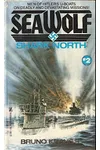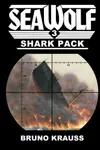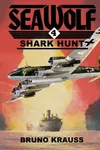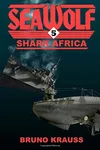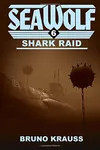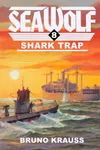Picture a British storyteller who plunged readers into the claustrophobic, pulse-pounding world of World War II submarine warfare—meet Bruno Krauss! Writing under this evocative pseudonym, Kenneth Bulmer (1921–2005) crafted the gripping 'Sea Wolf' series, blending meticulous research with thrilling narratives. His tales of German U-boat crews didn’t just entertain; they challenged readers to see the human side of history’s so-called villains.
Krauss’s work stands out for its vivid prose and unflinching look at the moral complexities of war. With a knack for turning historical grit into page-turning fiction, he became a quiet legend in military fiction. Let’s dive into the life, works, and lasting impact of this under-the-radar master.
The Making of Bruno Krauss
Born in London in 1921, Kenneth Bulmer was a prolific writer whose imagination spanned genres, from science fiction to historical thrillers. Little is known about his early life, but his love for storytelling bloomed in post-war Britain, a time when tales of conflict resonated deeply. Under the Bruno Krauss pseudonym, Bulmer channeled his fascination with naval history into the 'Sea Wolf' series, launching his military fiction career in 1978 with 'Steel Shark.' His ability to adopt distinct voices for different genres showcased his versatility, setting the stage for Krauss’s gritty submarine sagas.
Bulmer’s background as a science fiction writer, with over 160 novels to his name, likely sharpened his skill for world-building. This talent carried over into his Krauss works, where the cramped, perilous interiors of U-boats became as vivid as any alien planet.
Bruno Krauss’s Unforgettable Stories
The 'Sea Wolf' series, spanning eight novels from 1978 to 1982, is Bruno Krauss’s crowning achievement. Centered on U-boat commander Baldur Wolz, nicknamed Sea Wolf, the series immerses readers in the high-stakes world of German submarine warfare. Each book pulses with tension, from torpedo-laden chases to the psychological toll of life underwater. Krauss’s meticulous research—evident in details like U-boat tactics and naval terminology—grounds the fiction in chilling authenticity.
Key works include 'Steel Shark' (1978), where U-42 stalks a British destroyer in a deadly Atlantic duel, and 'Shark North' (1978), which follows a covert mission in a Norwegian fjord under Hitler’s direct orders. 'Shark Pack' (1978) captures the brutal summer of 1940, with U-boats hunting British convoys, while 'Shark Raid' (1980) pits Wolz against a trap at a North African base. Krauss’s style blends relentless pacing with nuanced characters, portraying German sailors not as caricatures but as complex men driven by duty, fear, and ambition.
Unlike typical war novels, Krauss’s stories don’t shy away from the enemy’s perspective. This bold choice invites readers to empathize with U-boat crews, a narrative risk that makes the series both provocative and memorable. His prose, sharp and immersive, turns technical naval battles into visceral human dramas.
Why Bruno Krauss Matters
Bruno Krauss’s 'Sea Wolf' series redefined military fiction by humanizing the German perspective during World War II. At a time when war stories often painted clear heroes and villains, Krauss dared to explore the gray areas, showing the courage and flaws of U-boat crews. This nuanced approach influenced later authors who tackled complex war narratives, cementing his legacy in the genre.
Though less celebrated than mainstream war novelists, Krauss’s work endures among fans of historical fiction. His ability to weave research, suspense, and moral questions into compact paperbacks makes him a hidden gem worth rediscovering. For readers craving authentic, thought-provoking war stories, Krauss remains a master.
- Born: 1921, London, England (as Kenneth Bulmer)
- Key Works: 'Steel Shark,' 'Shark North,' 'Shark Pack,' 'Shark Raid'
- Genre: Military Fiction
- Pseudonym: Bruno Krauss
Ready to navigate the treacherous waters of World War II? Snag 'Steel Shark' and dive into Bruno Krauss’s thrilling 'Sea Wolf' series!

